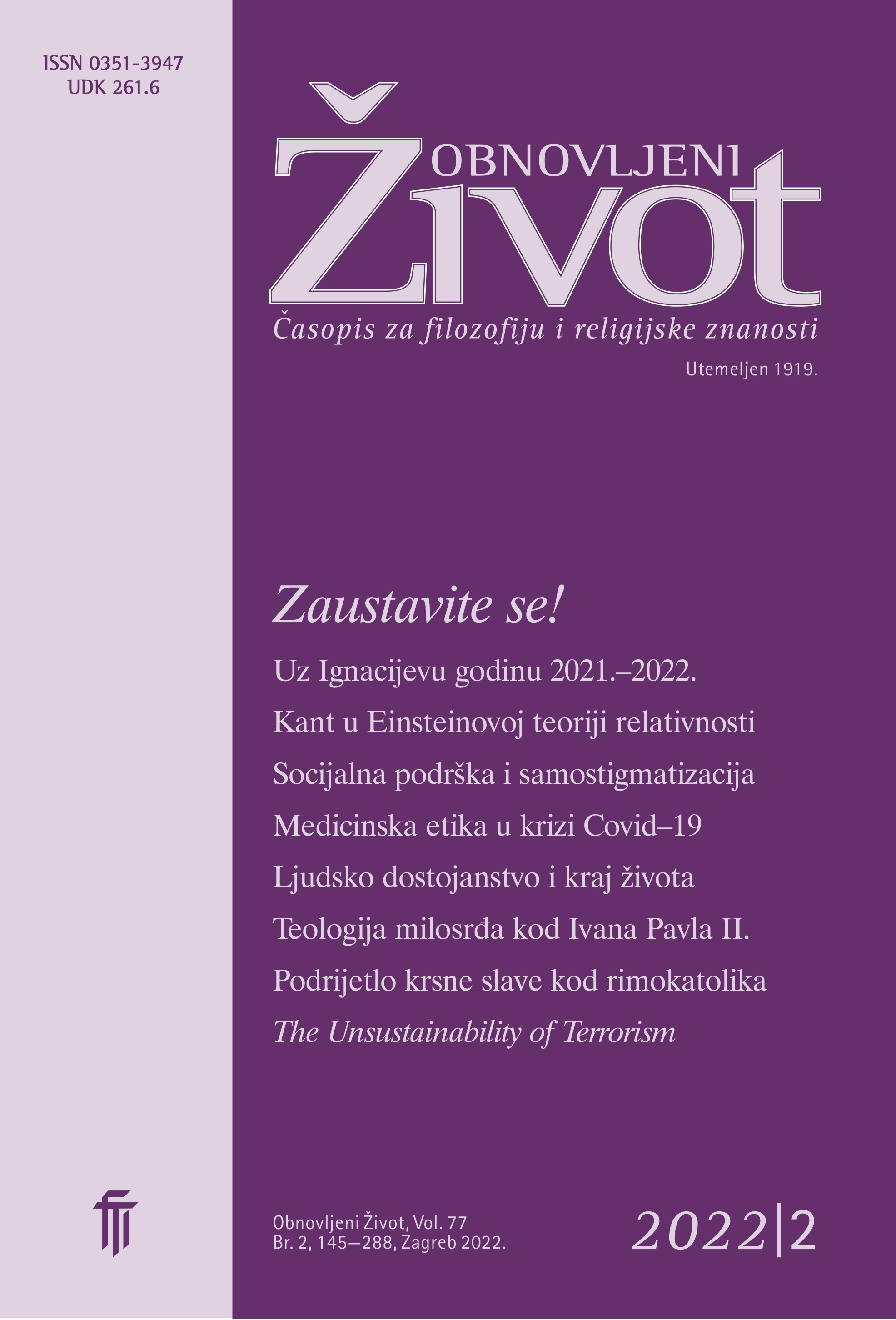The Role of Social Support and Insight into the Self–Stigmatization of Persons Suffering from Schizophrenia
Keywords:
self–stigmatization, social support, insight, schizophreniaAbstract
Schizophrenia is associated with various beliefs that are most often associated with negative labeling, called stigma. Some of the wrong beliefs are that schizophrenia is incurable and dangerous and that patients are aggressive, incapable of life, decision making and work. Many patients with schizophrenia accept the stigmatizing attitudes of the society as personally relevant, leading to the process of self–stigmatization, which prevents them from getting in touch with people, encouraging feelings of shame, helplessness and guilt and prevents their progress. Studies confirm that patients with good social support have better prognosis for the disease and that those with lower social support show higher self–stigmatization. Studies have shown that insight can also be related to the level of self–stigmatization. Higher insight is associated with higher self–stigmatization, higher alienation, higher stereotype endorsement, higher discrimination experience and higher social withdrawal. In the available literature they have not studied together social support, insight and self– stigmatization on a sample of patients with schizophrenia. The aim of this study was to examine the predictive contribution of the social support and insight for self–stigmatization and its dimensions of patients with schizophrenia. This cross–sectional study was conducted on 74 patients with schizophrenia. The participants completed the Internalized Stigma of Mental Illness Scale, Scales of Perceived Social Support, A self–report Insight Scale for psychosis and General Data Questionnaire, by the paper–pencil technique. Hierarchical regression analyses have shown that social support and insight have a statistically significant contribution to self–stigmatization and some of its dimensions in patients with schizophrenia. Lower social support and higher insight predict higher self–stigmatization, higher alienation, higher stereotype endorsement and higher social withdrawal. Lower social support predicts higher discrimination experience.
Downloads
Published
Issue
Section
License
Jednom prihvaćeni članak obvezuje autora da ga ne smije objaviti drugdje bez dozvole uredništva, a i tada samo uz bilješku da je objavljen prvi put u Obnovljenom životu. Uredništvo će obavijestiti autora o prihvaćanju ili neprihvaćanju članka za objavljivanje.
Članci objavljeni u časopisu se, uz prikladno navođenje izvora, smiju besplatno koristiti u obrazovne i druge nekomercijalne svrhe.


